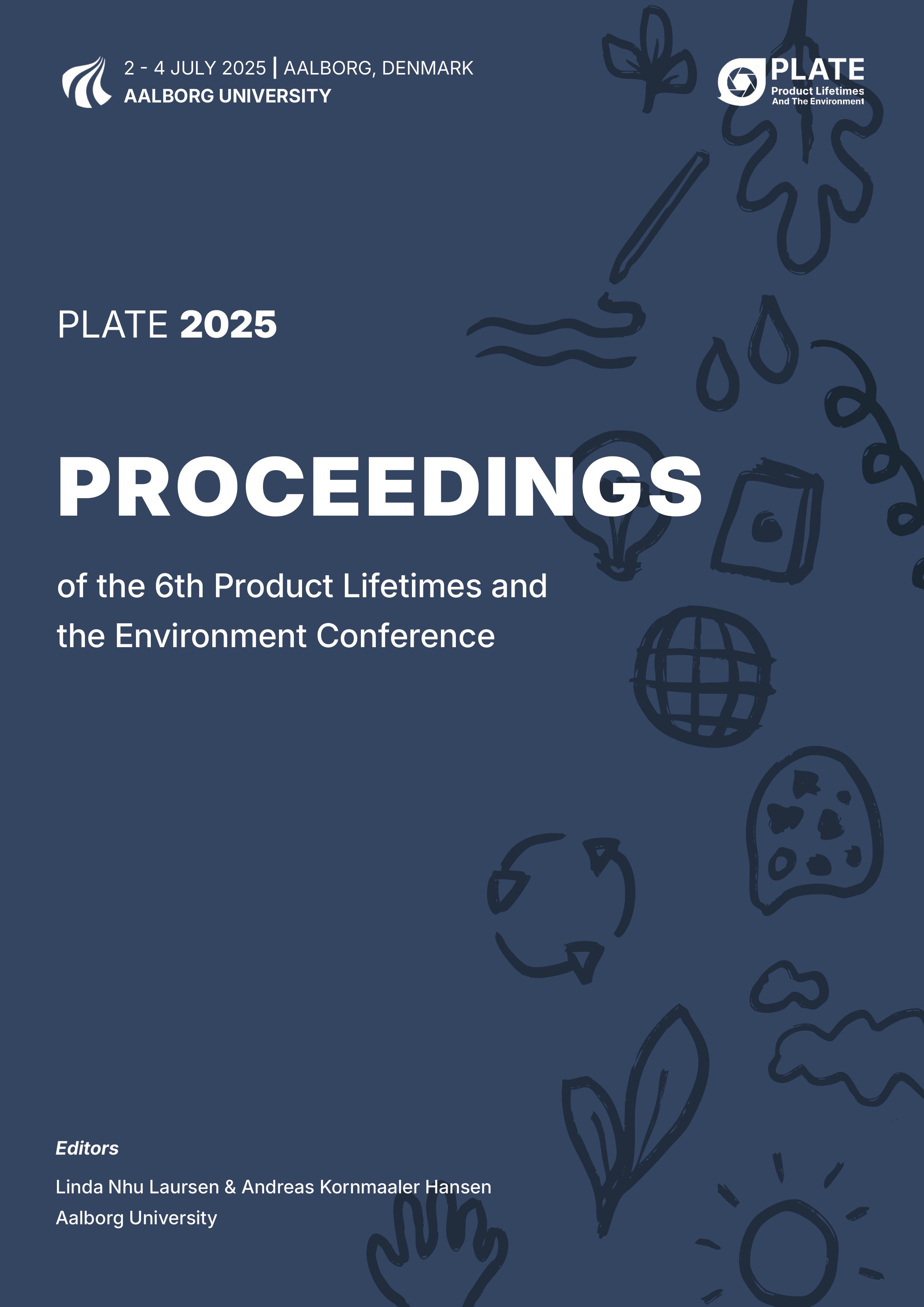Nudging as a strategy to prevent behavioural rebound effects in the early phases of design
DOI:
https://doi.org/10.54337/plate2025-10303Keywords:
Nudging, Rebound effects, Design for sustainability, Sustainable behaviourAbstract
Despite the recognition that ca. 50% of the potential environmental gains of sustainability-oriented interventions are offset by rebound effects (RE), effective strategies that can prevent the occurrence of rebound effects are currently missing. To address this gap, this paper explores how nudging can be used to prevent RE during the early phases of design of products, product/service-systems and socio-technical systems. Through a Systematic Literature Review, 23 nudges that have the potential to promote sustainable behaviour were identified and subsequently classified into four categories: ‘Decision information’ (e.g. descriptive norms), ‘Decision structure’ (e.g. defaults), ‘Decision assistance’ (e.g. pre-commitment), and ‘Miscellaneous’ (e.g. priming). The identified nudges served as the foundation for the development of a novel design tool that can support the selection of nudges to prevent RE in the early phases of design, with indication of potential additional RE emerging from the implementation of the selected nudges. In addition to the development of the tool, this study mapped existing research gaps that can guide further research in the field.
References
Blessing, L. T. M. & Chakrabarti, A. (2009), DRM, a Design Research Methodology. Springer London. https://doi.org/10.1007/978-1-84882-587-1
Brockway, P.E., Sorrell, S., Semieniuk, G., Heun, M. K. & Court, V. (2021). Energy efficiency and economy-wide rebound effects: A review of the evidence and its implications. In Renewable and Sustainable Energy Reviews (Vol. 141). Elsevier Ltd. https://doi.org/10.1016/j.rser.2021.110781
DaSilva, B., Dhar, J., Rafiq, S., & Young, D. (2023). Nudging consumers toward sustainability. In Sustainable Business Model Innovation. https://doi.org/10.1515/9783111295268-015
Guzzo, D., Walrave, B., Videira, N., Oliveira, I. C., & Pigosso, D. C. A. (2024). Towards a systemic view on rebound effects: Modelling the feedback loops of rebound mechanisms. Ecological Economics, 217. https://doi.org/10.1016/j.ecolecon.2023.108050
McAloone, T. C., & Bey, N. (2009). Environmental improvement through product development: A guide. Danish Environmental Protection Agency. http://www.kp.mek.dtu.dk/English/Research/areas/ecodesign/guide.aspx
Münscher, R., Vetter, M., & Scheuerle, T. (2016). A Review and Taxonomy of Choice Architecture Techniques. Journal of Behavioral Decision Making, 29(5), 511–524. https://doi.org/10.1002/bdm.1897
Osbaldiston, R., & Schott, J. P. (2012). Environmental sustainability and behavioral science: Meta-analysis of proenvironmental behavior experiments. Environment and Behavior, 44(2), 257–299. https://doi.org/10.1177/0013916511402673
Otto, S., Kaiser, F. G., & Arnold, O. (2014). The critical challenge of climate change for psychology: Preventing rebound and promoting more individual irrationality. European Psychologist, 19(2), 96–106. https://doi.org/10.1027/1016-9040/a000182
Pigosso, D. C. A & Van der Loo, I. (2024).Explaining the rebound effects of sustainabledesign: a behavioural perspective, InternationalDesign Conference – Design 2024. https://doi.org/10.1017/pds.2024.152
Schubert, C. (2017). Green nudges: Do they work? Are they ethical? Ecological Economics, 132, 329–342. https://doi.org/10.1016/j.ecolecon.2016.11.009
Siipi, H., & Koi, P. (2022). The Ethics of Climate Nudges: Central Issues for Applying Choice Architecture Interventions to Climate Policy. European Journal of Risk Regulation, 13(2), 218–235. https://doi.org/10.1017/err.2021.49
Thaler, R. H. & Sunstein C. R. (2009). Nudge: Siipi, Improving Decisions About Health, Wealth, and Happiness. Penguin Books. ISBN-13. 978-0143115267.




